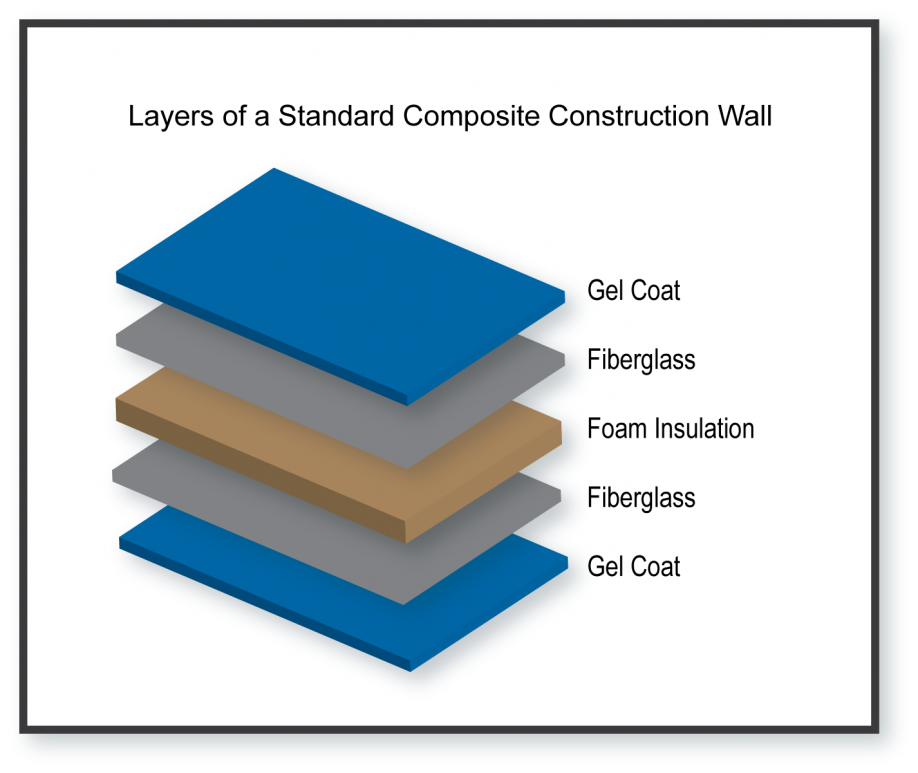Checking Out the Uses and Advantages of Recycled Composites in Modern Industries
The amalgamation of recycled products with sophisticated composite technologies offers a promising opportunity for boosting sustainability, strength, and cost-efficiency across different markets. As sectors look for innovative remedies to resolve ecological concerns and improve operational performances, the consolidation of recycled compounds arises as an engaging option.
Environmental Advantages of Recycled Composites
The use of recycled compounds in modern-day markets supplies substantial ecological advantages, adding to the decrease of waste and the conservation of natural sources. By including recycled compounds right into producing processes, markets can lower their reliance on virgin materials, thus decreasing the quantity of waste produced and the energy required for removal and production. This shift towards utilizing recycled compounds assists in diverting materials from land fills, easing the concern on waste administration systems, and decreasing greenhouse gas discharges linked with standard production methods.
In addition, the usage of recycled compounds advertises the preservation of natural sources such as timber, minerals, and water, which are typically diminished through the removal and processing of raw materials (composites). By expanding the life-span of products through recycling, sectors can assist preserve communities and biodiversity by lowering the need for new sources. Generally, the adoption of recycled compounds in modern-day markets plays a vital role in advertising sustainability and reducing the environmental impact of manufacturing processes
Enhanced Toughness in Product Production
With a focus on durability and toughness, including recycled compounds right into product manufacturing processes improves sturdiness and sustainability. By making use of recycled composites, suppliers can produce items that are not just strong however additionally resistant to damage, making them perfect for long-term use in numerous markets. The mix of different products in recycled composites can commonly lead to boosted strength and toughness contrasted to conventional materials, giving an economical remedy for producing resilient products.
Among the vital advantages of using recycled composites in item production is the capability to customize the material properties to meet particular resilience needs. By readjusting the make-up and production techniques, manufacturers can personalize the recycled compounds to hold up against harsh environmental conditions, heavy lots, or frequent usage without compromising on performance. This flexibility in design and production permits the production of very durable items that maintain their stability gradually, minimizing the requirement for regular replacements and inevitably adding to a more lasting production procedure.
Cost-Effectiveness and Financial Advantages
Integrating recycled compounds right into product manufacturing not just boosts toughness and sustainability but also uses substantial cost-effectiveness and economic advantages. Using recycled compounds can lead to decreased material prices as recycled materials are often less costly than virgin materials. Furthermore, reusing composite materials can reduce garbage disposal costs and lower the need for landfill space, adding to general cost financial savings for sectors.

Development and Design Adaptability With Recycled Compounds
Making use of recycled compounds in contemporary industries supplies unparalleled possibilities for development and design adaptability. By integrating recycled materials right into composite manufacturing procedures, business can push the borders of standard design restraints and explore brand-new possibilities. The versatility of recycled compounds permits the production of complicated forms and structures that could not be attainable with standard materials.
Among the useful reference key benefits of recycled composites is their capability to be molded into different forms, offering designers the flexibility to explore special shapes and sizes. composites. This versatility opens a world of imaginative opportunities, making it possible for the advancement of light-weight yet durable products that fulfill the details requirements of various industries
Moreover, the use of recycled composites advertises lasting practices and supports the circular economic situation by decreasing waste and lessening the ecological influence of making procedures. This concentrate on environmentally friendly style options straightens with the growing trend towards sustainability in contemporary industries, making recycled compounds an important source for ingenious and forward-thinking companies.
Applications Across Various Industries
Recycled composites discover diverse and impactful applications throughout a vast array of sectors as a result of their one-of-a-kind homes and sustainability advantages. In the automobile industry, these materials are progressively utilized for producing long lasting and lightweight elements, enhancing gas efficiency and reducing carbon emissions. The aerospace industry advantages from recycled compounds in the production of airplane components, where the materials' strength-to-weight ratio is important for making sure security and efficiency. In building, these composites are utilized for producing strong yet eco-friendly structure materials, adding to sustainable framework development. The eco-friendly energy industry employs recycled compounds in wind turbine blades and photovoltaic panels, utilizing their toughness and resistance to rough environmental conditions. In addition, the aquatic industry utilizes these products for producing watercraft hulls and elements, providing improved longevity and deterioration resistance. The flexibility and sustainability of recycled composites make them useful across numerous sectors, driving advancement and environmental stewardship. composites.
Verdict
In conclusion, the usage of recycled compounds in modern markets supplies significant environmental advantages, improved durability in item production, cost-effectiveness, and financial advantages. The usage of recycled compounds allows for development and style versatility across numerous sectors. Overall, the adoption of recycled composites presents a sustainable and useful remedy for fulfilling the demands of the industry while additionally reducing environmental impact.

One view website of the essential advantages of utilizing recycled compounds in product manufacturing is the ability to customize the material homes to meet details durability demands. Using recycled composites can lead to lowered product costs as recycled products are commonly less pricey than virgin materials. The aerospace industry benefits from recycled compounds in the manufacturing of airplane parts, where the products' strength-to-weight ratio is essential for guaranteeing security and efficiency.